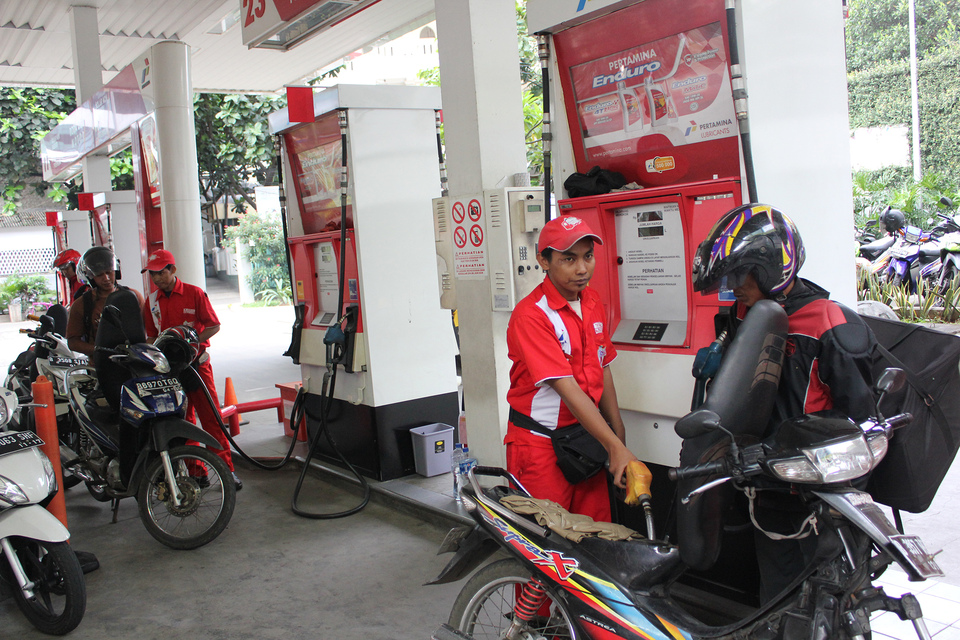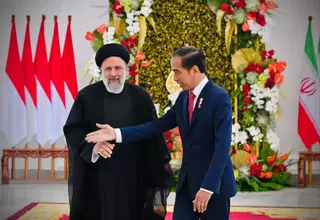Indonesia's Pertamina Eyes Profit From Retail Fuel Sales in 2016

Jakarta. Indonesia's state energy firm Pertamina hopes its retail fuel business will move back into profit this year, having made a loss of almost $1 billion in 2015, its chief executive said on Wednesday (30/03).
Southeast Asia's largest economy removed gasoline subsidies and capped diesel subsidies at Rp 1,000 ($0.08) per litre at the start of 2015, but prices of low-octane gasoline and diesel are still set by the government every three months.
Prices the government decided for most of 2015 were below Pertamina's production costs and the company had to shoulder a loss of Rp 12 trillion ($905 million).
The government will cut prices for RON 88 gasoline and diesel for April-July by about 8 percent, energy minister Sudirman Said said at a press conference on Wednesday, but that still leaves Pertamina with a profit margin, Pertamina CEO Dwi Soetjipto said.
Soetjipto noted prices could be reduced further in April if they were to reflect market changes, but the government has decided to allow the company to enjoy some profits. Pertamina had also made profit from January-March fuel sales.
The profits, which will be audited by the state's Supreme Audit Agency (BPS), could be used to buffer future fuel price volatility, he said. Should auditors think the profit margin is too wide, the company will use the money to cut prices, even if global oil prices move in a different direction.
"When fuel prices fall, transportation costs stay, but when they rise, transport costs also rise instantly. That's why this price mechanism is needed," said Soetjipto, adding he expects global oil prices to range between $38 and $42 per barrel for the rest of 2016.
Transport minister Ignasius Jonan said at the same press conference that all transportation tariffs would be cut by 3 percent from April following the fuel price cuts.
In December last year, the government announced a plan for a new levy on fuels, proceeds of which would be used partly to control fuel price volatility, but the plan proved controversial and it was scrapped.
Said last week also said the government may seek parliamentary approval to scrap diesel subsidies in a budget revision for 2016, which it will submit before the second half of this year.
Reuters
Tags: Keywords:POPULAR READS
Apple Wants to Increase Investments in Vietnam
Vietnam has become more important to Apple as the company seeks to diversify its supply chains away from China.China’s Top Diplomat Wang Yi to Visit Indonesia for Cooperation Talks
Chinese top diplomat Wang Yi will chair a policy coordination meeting aimed at strengthening Indonesia-China cooperation.President Jokowi Urges Global Restraint as Tensions Rise in the Middle East
President Joko "Jokowi" Widodo emphasized the importance of diplomatic efforts to prevent the escalation of conflict in the Middle EastKPK Identifies Sidoarjo Regent as Suspect in Corruption Probe
KPK has identified Ahmad Muhdlor Ali as a suspect in a corruption case involving the Sidoarjo Regional Tax Service AgencyEconomic Concerns Overshadow Security Worries for Indonesians in Iran
Indonesian citizens currently in Iran are more concerned about rising inflation than the security situation in the country.Popular Tag
Most Popular






















